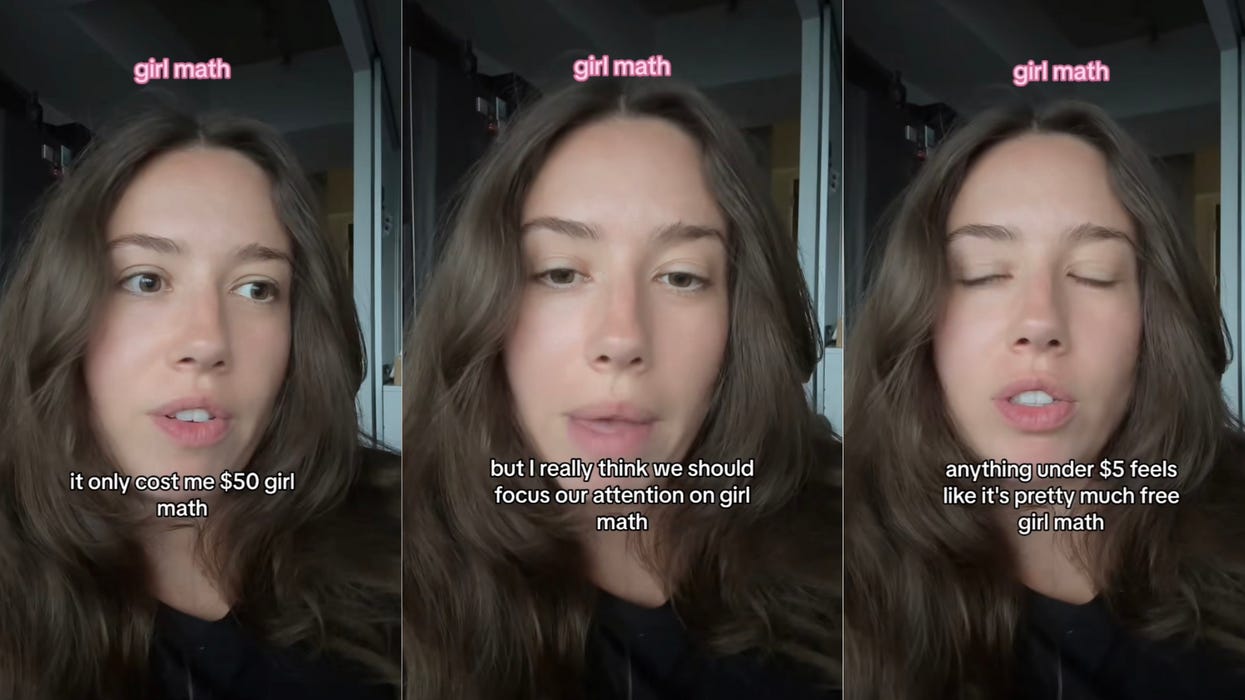Girl Math: Is it just a meme?
The 'Girl Math' meme: A witty take on spending hides a serious discussion on the gender wage gap. Let's move beyond the jokes, advocating for equal pay, fair opportunities, and a bias-free world.
“If I add products worth Rs. 2000 more, I’d get a free delivery, such a steal!” Add a coquette styled pink ribbon to the corner of this sentence, and there you go, a perfect “Girl Math” meme. While some take offence to this stereotypical meme, it is mostly viewed as an ode to the small joys of spending by a woman. However, the tendency to undervalue the value of a rupee in a woman’s hand does not run this light. In the one-year period between July 2022 and June 2023, an average salaried Indian male made ₹20,666 in a month. A woman, on the other hand, only made ₹15,722.25. The ‘girl math’ is not quite right here, isn't it?
The Gender-Pay Gap
The gender wage gap refers to the difference in earnings between men and women for the same or similar work. This disparity persists despite legal protections and cultural shifts towards gender equality. One may ponder over what is the economics or mathematics behind this. The gender wage gap, unfortunately, isn't simply a matter of straightforward arithmetics. It's a complex issue with roots in social, cultural, and historical factors that can't be easily quantified or reduced to a single equation. While there are studies that use statistical models to analyse the gap and its contributing factors, these models are just tools to help us understand the bigger picture.
Traditional economics explains wage gaps through supply and demand for skills. The theory goes, if fewer women hold certain skills, their wages rise due to scarcity. But, in reality, women are underrepresented in high-paying fields not because of inherent lack of skills, but because of systemic barriers and societal expectations. Think of the job market as a chessboard. Men and women often occupy different pieces – women concentrated in traditionally "feminine" fields like caregiving and education, while men dominate higher-paying sectors like finance and technology.
The Economics Behind it and the Pink Tax
Time spent outside the workforce caring for family reduces women's career hours and opportunities for skill development, impacting their earning power. The gender wage gap has ripple effects. It translates to lower pensions, limited access to credit, and economic insecurity for women and their families. It hinders overall economic growth by underutilizing female talent and perpetuates cycles of poverty.
‘Girl math’ does not just see a negative impact in wages, but in everything women consume! Popularly known as the pink tax, it is a sneaky markup on products marketed to women. Razors, dry cleaning, and even shampoos are often pricier just because their target audience is women. So, are women over-spending or is society constructed in such a way that forces women to spend more for survival? This sheds a lot of light on the concept and complexity of the ‘Girl Math’ meme.
Boy Math
Stemming from this meme, came the term ‘Boy Math’. It started as a response to girl math. While ‘girl math' often involves humorously stretching the budget or finding bargains, boy math typically flips the script and points out ironic or hypocritical behaviours of men. While some participated in this trend due to the offence they felt by the girl math memes, others did it simply as an execution of humour. While girl math and boy math offer a chuckle with their playful twists on money matters, they're more than just memes.
Conclusion
They are sparks in a crucial conversation about the real-life economic gender gap. The memes highlight gendered expectations and double standards around finances, but the reality bites deeper. Women globally earn significantly less than men for the same work, an invisible tax that affects their independence, careers, and well-being. Using these humorous jabs as stepping stones, a broader issue has to be tackled. We need equal pay policies, fair workplace opportunities, and a societal shift away from ingrained biases. It's time to move beyond the "math" and create a world where economic fairness isn't just a punchline, but a fundamental reality for everyone.










Brilliant article.